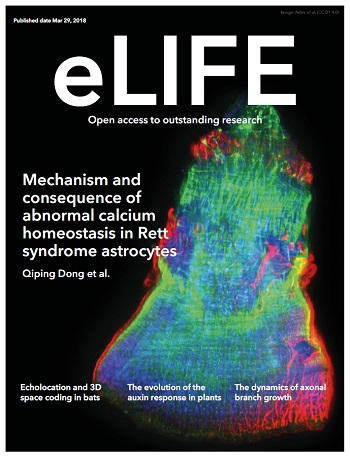1 型调节性 T 细胞的表观遗传轨迹。
IF 6.4
1区 生物学
Q1 BIOLOGY
引用次数: 0
摘要
T 滤泡辅助细胞的表观基因组为它们转化为 1 型调节性 T 细胞做好了准备。本文章由计算机程序翻译,如有差异,请以英文原文为准。
The epigenetic trajectory of type 1 regulatory T cells.
The epigenome of T follicular helper cells prepares them for conversion into type 1 regulatory T cells.
求助全文
通过发布文献求助,成功后即可免费获取论文全文。
去求助
来源期刊

eLife
BIOLOGY-
CiteScore
12.90
自引率
3.90%
发文量
3122
审稿时长
17 weeks
期刊介绍:
eLife is a distinguished, not-for-profit, peer-reviewed open access scientific journal that specializes in the fields of biomedical and life sciences. eLife is known for its selective publication process, which includes a variety of article types such as:
Research Articles: Detailed reports of original research findings.
Short Reports: Concise presentations of significant findings that do not warrant a full-length research article.
Tools and Resources: Descriptions of new tools, technologies, or resources that facilitate scientific research.
Research Advances: Brief reports on significant scientific advancements that have immediate implications for the field.
Scientific Correspondence: Short communications that comment on or provide additional information related to published articles.
Review Articles: Comprehensive overviews of a specific topic or field within the life sciences.
 求助内容:
求助内容: 应助结果提醒方式:
应助结果提醒方式:


